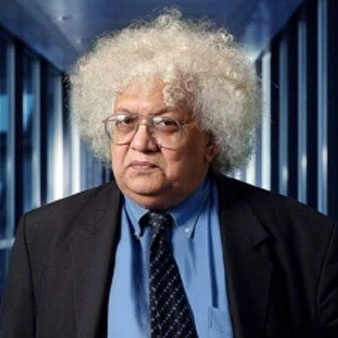Topic
Lord Meghnad Desai on Nehru's Hero Dilip Kumar: In the Life of India In Conversation with Shabbir Shakir
On 28th 05.00 pm - 05:40 pm
I was Never a person of political views. As I grew up watching Dilip Kumar movies in the halls of Baroda and Bombay, he was one of the thousands who mimicked his dress, hairstyle, mannerisms and dialogues. India was changing around him. It was Nehru's India, proud and independent in its destiny in the community of nations. Dilip Kumar embodied how the Nehruvian man perceived himself, sensitive yet strong, passionate yet mindful, a role model, an icon and always so exemplary. I did not want to write only about politics but about the growing up of my generation and how films affected us.
In Dilip Kumar and his movies between 1944 and 1964, I saw the epitome of young India. Fifty-seven movies, countless awards-the Sheriff of Bombay, the Padma Bhushan, the Dadasaheb Phalke, Rajya Sabha membership and controversially, the Nishan-e-Imtiaz from the Pakistani government. Sadly, an India also left Nehru-and Kumar, his great admirer, behind in its communal and religious divisions, which destroyed what the freedom movement had so carefully nurtured. Dilip Kumar was indeed Nehru's Hero.
